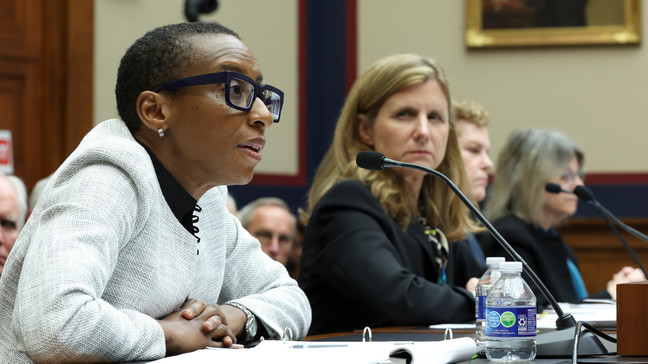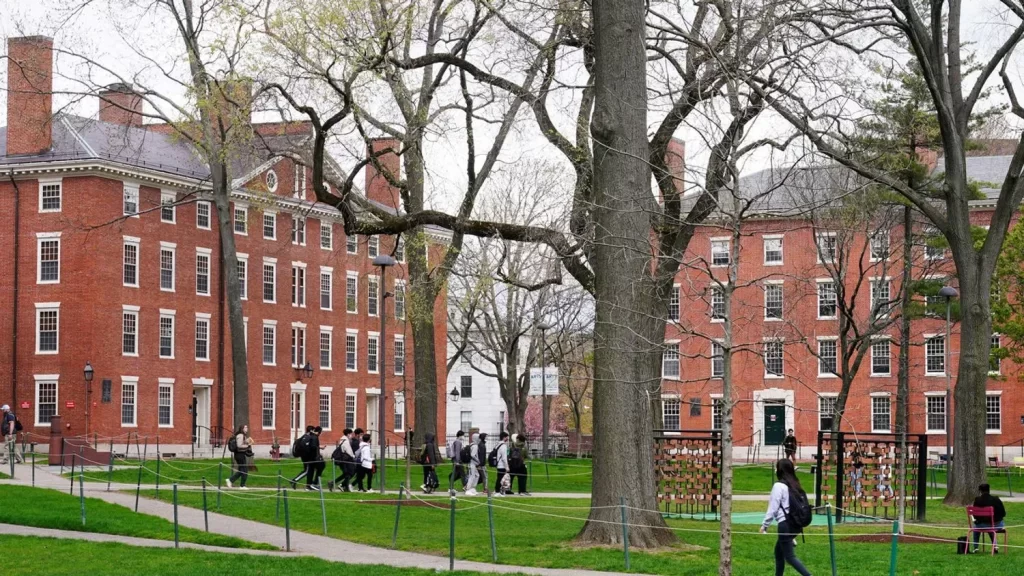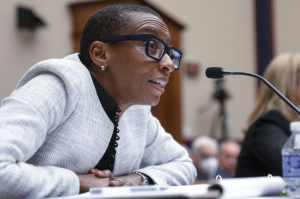Plagiarism has long been considered a grave offense in American higher education, capable of ruining the careers of academics and students alike. Recently, Harvard President Claudine Gay found herself at the center of such accusations, leading to her resignation. However, the controversy surrounding her academic citations and subsequent attacks by her political adversaries raise questions about the motivations behind the outrage.
Harvard University conducted an internal review that revealed multiple shortcomings in Claudine Gay’s academic citations, including instances of “duplicative language.” While the university concluded that these errors were not intentional or reckless, and did not amount to misconduct, the allegations persisted, with new ones emerging even as recently as Monday. It is important to note that the complaints were not solely from Gay’s academic peers but also came from her political opponents.
Leading the charge against Claudine Gay were conservatives who sought to oust her from her position as Harvard President. They subjected her career to intense scrutiny, hoping to unveil a fatal flaw. Detractors alleged that Gay, a highly accomplished individual with a Ph.D. in government, professorships at prestigious institutions like Harvard and Stanford, and previous leadership roles at Harvard, secured the top job primarily because she is a Black woman.

Washington, DC. The Committee held a hearing to investigate antisemitism on college campuses. (Photo by Kevin Dietsch/Getty Images)
Christopher Rufo, a conservative activist, played a significant role in orchestrating the campaign against Claudine Gay. He celebrated her departure as a victory in his ongoing crusade against elite institutions of higher education. On social media, Rufo wrote “SCALPED,” using a metaphor that evoked the violent eradication of Native Americans by white colonists. This choice of words not only displayed a lack of sensitivity but also underscored the intense animosity behind the attacks on Gay.

The case of Claudine Gay raises larger questions about the intersection of plagiarism accusations, political agendas, and identity-based criticism. While it is crucial to hold individuals accountable for any academic misconduct, it is equally important to examine the motivations behind such accusations and attacks. The incident also highlights the challenges faced by minority individuals in leadership positions, who often find themselves subjected to heightened scrutiny and unfair criticism.
The plagiarism charges and subsequent political attacks that led to the resignation of Harvard President Claudine Gay have brought attention to the complex dynamics at play in academia and society at large. While the seriousness of plagiarism allegations should not be undermined, it is essential to consider the motivations behind such accusations and the potential impact on individuals from underrepresented backgrounds. Moving forward, it is crucial to foster an environment where accountability is balanced with fairness and equity, ensuring that all leaders are judged based on merit and not subjected to unjust scrutiny.


















